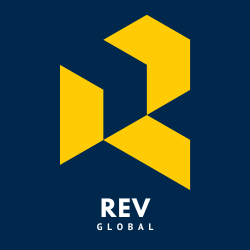As Artificial Intelligence (AI) becomes a business necessity, firms are increasingly looking to hire AI talent to stay competitive. However, hiring for AI requires a different approach than traditional roles. Businesses must understand the skills needed, the best hiring strategies, and how to assess candidates effectively. This guide provides a roadmap for firms looking to build AI expertise within their teams.
Step 1: Define Your AI Needs
What Do You Want AI to Accomplish?
Before hiring, determine your business objectives for AI. AI applications can range from automation and data analysis to machine learning and natural language processing.
Key Questions to Ask:
-
What business problems should AI solve?
-
Are you looking for AI development (building models) or AI implementation (using existing solutions)?
-
Will AI be used for internal operations, customer engagement, or data analytics?
✅ Action Item: Clearly define your AI project goals and required expertise before starting the hiring process.
Step 2: Identify Key AI Roles
Types of AI Professionals
Different AI roles cater to different business needs. Some common AI roles include:
-
Data Scientist – Develops AI models and analyzes data.
-
Machine Learning Engineer – Designs and implements AI algorithms.
-
AI Research Scientist – Focuses on cutting-edge AI advancements.
-
AI Software Engineer – Builds AI-powered applications.
-
AI Consultant – Advises on AI strategy and implementation.
-
Business Analyst (AI-focused) – Translates AI capabilities into business insights.
✅ Action Item: Determine which AI role(s) align with your business objectives.
Step 3: Hiring Strategies & Talent Sourcing
Where to Find AI Talent
-
Universities & AI Programs – Partner with top AI research institutions.
-
AI & Tech Job Boards – Platforms like LinkedIn, Kaggle, and AI-specific hiring sites.
-
Freelance & Contract Work – Consider AI consultants or project-based hires.
-
Industry Conferences & Hackathons – Identify top AI professionals in real-world settings.
-
Internal Upskilling – Train existing employees in AI capabilities.
✅ Action Item: Explore multiple sourcing channels to find the best AI candidates.
Step 4: Evaluating AI Candidates
Key Skills to Assess
-
Technical Skills: Python, TensorFlow, PyTorch, SQL, cloud computing, AI model development.
-
Problem-Solving Abilities: Experience in real-world AI applications.
-
Industry Knowledge: Understanding of AI use cases in your business sector.
-
Collaboration & Communication: Ability to explain AI insights to non-technical stakeholders.
Interview Best Practices
-
Use real-world AI challenges as assessments.
-
Conduct technical and business case interviews.
-
Look for candidates with a growth mindset and adaptability.
✅ Action Item: Develop a structured AI hiring process with technical and business-oriented evaluations.
Step 5: Onboarding & Retaining AI Talent
Successful Integration of AI Experts
-
Align AI hires with business strategy.
-
Provide ongoing learning opportunities (AI conferences, certifications).
-
Foster a data-driven culture within your organization.
-
Offer competitive compensation and career growth paths.
✅ Action Item: Build a long-term AI talent strategy that supports both retention and innovation.
Hiring for AI is more than just filling a position—it’s about building a capability that will drive future business success. By understanding your AI needs, sourcing the right talent, and creating a strong onboarding strategy, your firm can effectively harness AI’s potential.
💡 Need help hiring AI professionals? Contact us for AI hiring strategy consulting!

